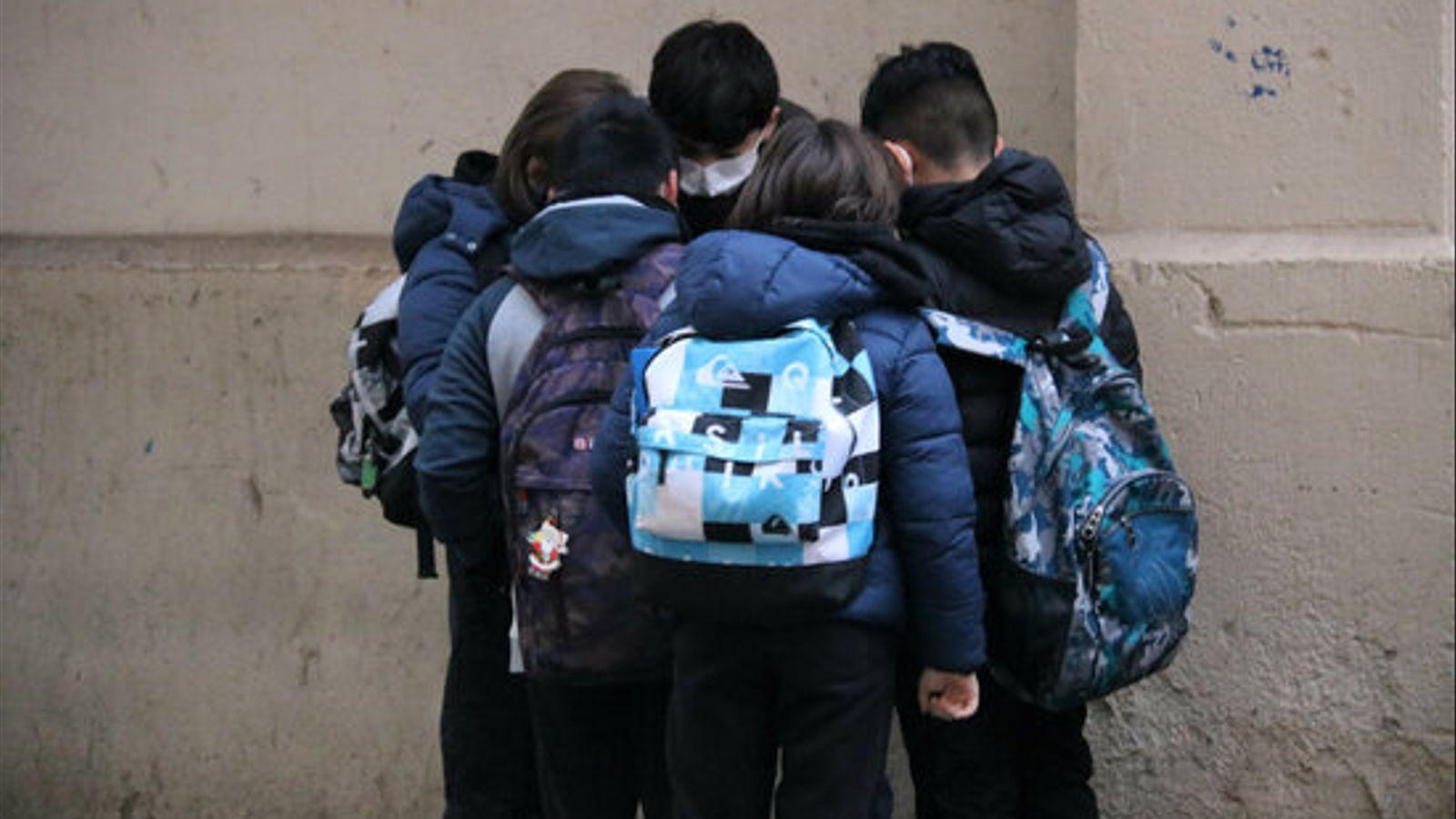Schools reopen with at least 2,000 teachers on sick leave
Education appoints 1,517 teachers in a single day and announces measures to guarantee timely substitute teacher


BarcelonaDespite the Omicron variant, the second school term has already begun and has done so with a major challenge: to ensure maximum normality in primary and secondary schools, which, to start with, will need a teacher in every classroom. To achieve this, the Department of Education has managed 1,517 interim appointments this Monday to replace teachers who have not gone to work, either because they are infected with covid or because they have other ailments. This figure must be added to the 571 substitutes appointed on Friday to cover sick leaves of teachers which had already informed of their situation. In total, 2,088 state school teachers have not been able to return to work, approximately 2%. The figure is slightly lower than the Spanish average –CCOO union estimates that between 4% and 6% of teachers in Spanish schools have not been able to join today–, but it may grow if we add sick leaves in chartered schools, which are managed independently and have not provided figures.
In any case, it is expected that covid leaves will be a steady trickle at least this week and the next. Therefore, and extraordinarily, from now on all state schools will cover sick leaves of 5 days or more. This measure is key because until now it was only sock leaves of 7 or more days that were covered. This would have left many infected persons without a replacement, given that the quarantine is, precisely, 7 days. In addition, exceptional emergency appointments may also be made for centres that have more than 3 teachers on sick leaves of under 5 days, and there will be online postings every day during this week and the next (normally they are made only on Mondays, Wednesdays and Fridays).
Concerns about the elimination of quarantines
Schools have resumed with new features, such as the elimination of quarantines for nurseries and primary school if the number of cases in a class is under five. According to the unions, the changes to the protocol are "reckless": Ustec and Comisiones Obreras have warned that children under 12 "have not even had the chance of getting fully vaccinated" and have criticized that they have to attend school even if cases are detected in their class. "It is an incomprehensible decision at a time of maximum incidence of contagion, they told Efe. Now 30% of students under 12 have received the first dose but almost none have had the full guideline because they have not had time. Students between 12 and 15 are mostly vaccinated (70.8% with the first dose and 58% with the full schedule) and almost nine out of ten of students aged 15 to 19 have received both doses.
Families, on the other hand, are divided: the group Revolta Educativa believes that the measure "will increase contagions" and will cause many families to decide not to take their children to school, while the organisation Tornem a les Escoles has celebrated the elimination of preventive quarantines which, they have calculated, have caused healthy children to lose 1,360,000 days of school in the past two years.
Epidemiology experts are also unclear about the new school protocol. The head of the Preventive Medicine and Epidemiology Service at Barcelona's Vall d'Hebron Hospital, Magda Campins, is in favour of minimising quarantines for minors and encouraging attendance at school, but warned that it is "a little imprudent" to do so coinciding with the return after Christmas and in the middle of the sixth wave.
